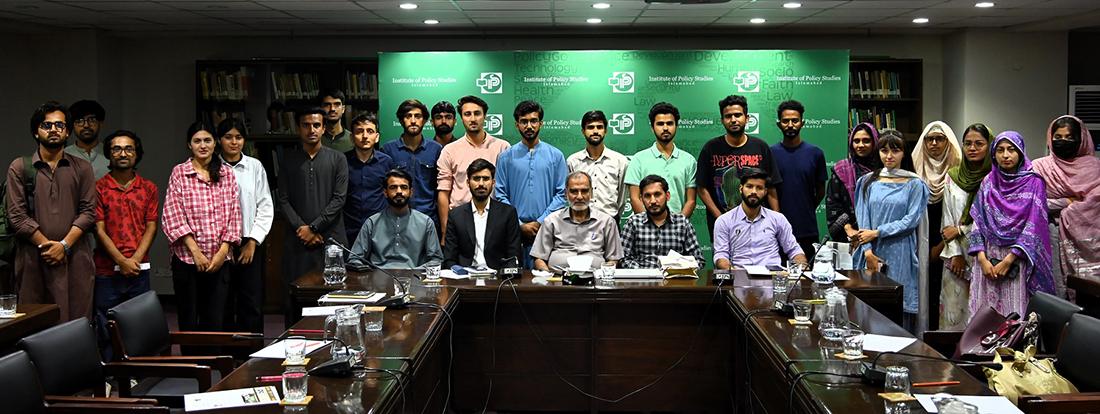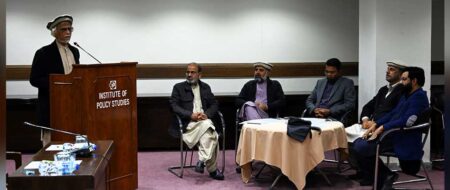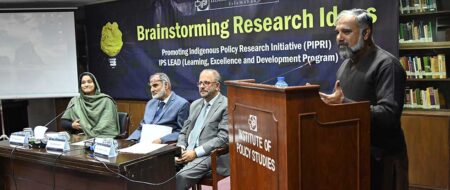Nexus between good governance, public administration signified before the students of Quaid-i-Azam University
Consensus, consistency in policy making processes essential ingredients for good governance
Consistency and stability are key ingredients for good governance. For that, achieving a reasonable consensus among all stakeholders is crucial, not merely for the sake of agreement, but to attain specific, meaningful objectives.
This was observed by Khalid Rahman, chairman IPS, during a lecture on governance to the students of the Public Administration Society, Quaid-i-Azam University (QAU), Islamabad, who were visiting the Institute on May 29, 2024.
Talking about the nexus of governance and public administration, Khalid Rahman said that effective governance is fundamentally based on a visionary approach and a dedicated, sincere team that prioritises public interest over individual interests. This vision and sincerity are the cornerstones for leveraging collective benefits, ensuring that governance serves the greater good rather than personal gains. He underscored the significance of mental development and mindset in fostering effective governance.
He highlighted two paradigms of governance: one where survival of the fittest prevails with no accountability, whereas the second paradigm acknowledges a higher order that governs the universe, emphasising accountability, purpose, and a long-term vision that transcends immediate self-interest. This duality presents a critical choice for decision-making for those in public administration and governance roles, he said.
Answering the queries of students, Khalid Rahman explored the comparative merits of proportionate representation versus the first-past-the-post system, understanding the implications each has on democratic processes and governance in Pakistan.
It was emphasized that a minimum common agenda must be maintained to ensure stability and effective governance. This common agenda acts as a foundational guideline that all stakeholders agree upon, providing a stable platform for policy-making and implementation.
A vital takeaway from the discussion was the importance of the implementation of the constitution for achieving good governance. The constitution provides the framework for governance, ensuring that the principles of justice, equality, and accountability are upheld.













